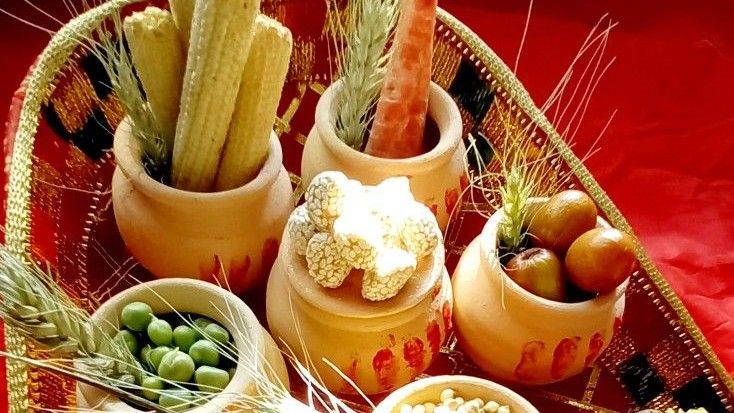
Bhogi, a festival marking the beginning of the harvest season, is celebrated in Maharashtra a day before Makar Sankranti. This auspicious day holds immense cultural and spiritual significance, as it symbolises the end of the winter solstice and the transition toward longer days. Observed with enthusiasm and joy, Bhogi is also celebrated in various other states under different names, showcasing the diversity of Indian traditions.

Why Bhogi is celebrated before Sankranti?
Bhogi is celebrated on the last day of the Tamil month Margazhi, which usually falls on January 13. In Maharashtra, it is dedicated to paying homage to Lord Indra, the God of Rain, for his blessings in ensuring a good harvest. The festival also serves as a day of cleansing, renewal, and preparation for Makar Sankranti.
Bhogi marks a time for families to let go of the old and welcome the new. Traditionally, people discard unused or unwanted items by burning them in a bonfire, symbolising the elimination of negativity from their lives.
Different names of Bhogi across India
While Bhogi is widely celebrated in Maharashtra, other states have their own unique names and customs for the festival:
Tamil Nadu: In Tamil Nadu, Bhogi is part of the Pongal celebrations and is known simply as Bhogi Pongal. It marks the first day of the four-day harvest festival.
Andhra Pradesh and Telangana: In these states, Bhogi is also celebrated with great fervor. Bonfires, known as 'Bhogi Mantalu,' are lit, and old items are discarded as a symbolic gesture of starting afresh.
#Bhogi The Festival of Bonfire:
— Āḍi Śloka (@AdiShloka) January 14, 2024
Another Hindu festival whose rituals showcases that we are not only culturally unmatchable but also scientifically Ingenious ;
Let's look at 3 important rituals associated with Bhogi Panduga :-
~ Bhogi Mantalu
~ Bhogi Pallu
~ Muggulu
Bhogi… pic.twitter.com/doeUBXw5vK
Karnataka: Bhogi is observed in Karnataka as part of Sankranti festivities, focusing on cleansing and renewal.
Punjab and Haryana: Although celebrated under a different name, Lohri shares similarities with Bhogi as it involves bonfires and celebrates the harvest.
Odisha: In Odisha, the festival is celebrated as Pahili Bhoga, marking the preparation for Makar Sankranti.
Bhogi Mantalu ...&
— ✨⚡️ (@SitaIRL88) January 15, 2023
Bhogi pallu,
Bommala Koluvu &
Andhra bhojanam !!
Perfect #Sankranthi #Sankranthi2023 #HappyMakarSankranti2023 #HappyPongal #SankranthiNJ pic.twitter.com/pOeIbrfvG2
How is Bhogi celebrated in Maharashtra?
In Maharashtra, Bhogi festivities begin early in the morning with people lighting bonfires using firewood and cow dung cakes. Families gather around the fire to offer prayers and chant mantras. The bonfire symbolises the burning of old habits, negativity, and anything that hinders personal growth.
Tomorrow many states like Maharashtra will celebrate the festival of "Bhogi" where special meals will be prepared using fresh, seasonal produce. If one goes by protein-influencers, this meal will fail. But traditional wisdom says to enjoy it with relish! That's what I'll do pic.twitter.com/iWtzC7Bced
— Kamal Vedā / कमल वेदा (@iKamalVeda) January 13, 2024
Homes are cleaned and decorated with rangoli signifying the welcoming of prosperity and happiness. Traditional Maharashtrian delicacies such as tilgul laddoos are prepared and exchanged as a gesture of goodwill. On Bhogi, a special meal is prepared for lunch which consists of Bajra and sesame seeds seeds roti, and a mixed vegetable. Ideally, the mixed vegetable symbolises the mixture of the first harvest of the season prepared together.
Spiritual values
Bhogi is not just a festival of customs; it is also deeply rooted in spiritual values. The bonfire and rituals encourage people to embrace positivity and start the year with a renewed sense of purpose. It’s a day to express gratitude for nature’s abundance and look forward to the agricultural cycle ahead.